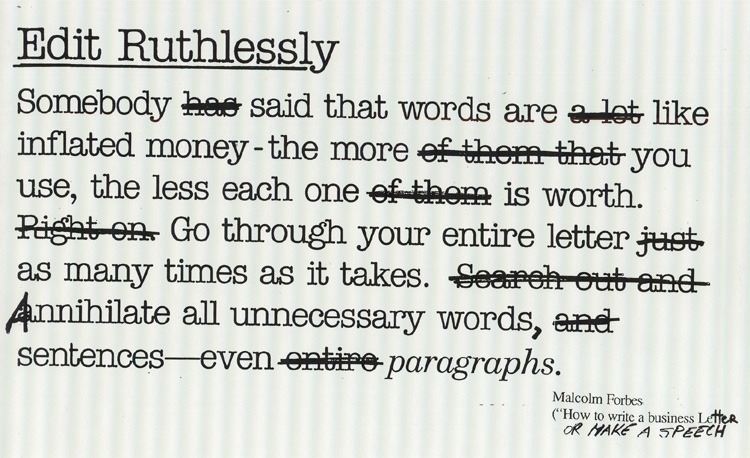Writing Sentences That Sell
Writing sentences that sell is about making MONEY!
(Just in case you thought it was about grammar!)
Use these writing gems to convert your next email, blog post, or website into a money-making machine!
If you’re not doing these, you’re not in business!
How To Write Sales Copy That Makes Money
10 pro steps to writing short, punchy statements with clear verbosity – that SELL!
These are the steps the Pro follows to make money online.
#1. Write in the Tense You Sell In.
It starts with avoiding the past.
For the sake of business, don’t dwell in the past. If it happened there, then that’s where it stays. In the past. Discussing the past when selling is forgetting you exist now with a solution at hand. You get one chance with writing. Going back is not moving forward. It’s not taking action.
Talk about today and what your vision makes of tomorrow. Not what tomorrow “will be” but what your ambitions, product, or service says it is.
And I’m not suggesting the past is escapable. The secret to talking about it without rambling on is in the power of “ed.” The “ed” is a suffix. You know, like talked, walked and called. “We talked yesterday,” is more direct than, “Our conversation yesterday is when we spoke.”
Notice how the absence of “ed” forces more to be written in that sentence. Using “ed” eliminates the clutter. The B.S. from your writing. Extensive details about the past are rarely necessary anyway. So “ed” only leaves you with what’s important. Think in absolute terms, so your readers know EXACTLY what they must do today.
For more information on writing great sales copy, check out this post or request this free copywriting eBook. The ultimate get-Started copywriters guide for copywriters, bloggers, salespeople, and entrepreneurs.
Related Posts:
How To Be A Better Copywriter – The Carrot and Stick
How To Create Product Personality
#2. Write with certainty, avoid “was,” “might,” and “would”
If he “was” going to do something, then he won’t or hasn’t yet. Bear with me. If you “will,” then the outcome is uncertain. Think about it. You either “are” or “aren’t.” Anything you “would” do has a strong chance of never occurring. Whenever you write that something “is to be,” it’s because reality, as in this moment, says it’s not.
I hope you’re catching on. These are simple shortcuts that keep you from going around in circles as you sell with sentences. No one online has the time for “maybes.” So to write with certainty, avoid “was,” “might,” “would” and phrases like “to be.”
Those tend to go nowhere.
You can eliminate “will” while we’re at it. Sentences that sell. …use “will” to convey power only. Or one’s will power. The other means “possibly.” Here’s what you use instead: “are,”
“am” and “is.” The sun “is” hot. I “am” hungry. You “are” here. Healthy sales conversions depend on that brevity.
You don’t start out writing good stuff. You start out writing crap and thinking it’s good stuff, and then gradually you get better at it. That’s why I say one of the most valuable traits is persistence.
~ Octavia E. Butler
#3. Cut Out %50 of Your First Attempt At Selling With Words
You can always edit a bad page. You can’t edit a blank page.
~ Jodi Picoult
This is trial by fire for the uninitiated. Professionals understand it, but its truth is vague without trial. No matter how pretty a sentence is if it’s the first time you wrote that particular sentence, cut out 50 percent of it. That’s a minimum. Do more if you can. Close your eyes if you have to, but deal with the pain because you must.
Sentences with clutter don’t convert well. Their message isn’t optimal. Beginners feel conversions are perfected the first time around. Here’s the thing, sentences carry more weight than necessary at first. ALL sentences do! So pros give them a makeover as they’re committed to paper. A CTA is more powerful slimmed down to important points only.
#4. The Difference Between Latin, Anglo-Saxon, and Which Converts best?
You weren’t taught it in school. This is a history lesson that converts. Consider these languages: Latin, Italian, Spanish, and English. Each conjugates differently though the words are often similar. They’re variants of the same in many ways. We, we’ll stick to the words of the Anglo-Saxons.
Here’s why: Words like determination–or others with four to five syllables–come from Latin derivatives. The Latin words are snobbish and overly intellectual. Seriously. Here’s an example: “The exceptionality of independently existing without the departmentalized features of imprisonment is an establishment for exhilaration.”
These are words that have “dent,” “ment” and “tion.”
And that multi-syllabic sentence above actually makes sense. It’s just too much for anyone to deal with. That’s where the Anglo-Saxon words come in. They’re optimized by today’s technology. The Anglos inhabited Britain. Their English was short, one to two syllables words that express all under the sun.
Like plate, bed, hope, saw, walked, bead ate, slept, and loved. Those are the words your readers connect to when buying. They say everything with less.
[Explore Further: Writing English as a Second Language]
++++++++++++++++++ Writing Success +++++++++++++++++++
Free e-book: 20 Editing Tips from Professional Writers
Request a copy of this Free e-book today: 20 Editing Tips from Professional Writers
Essential reading for anyone who is serious about becoming a better writer.
Whether you are writing a novel, essay, article or email, good writing is an essential part of communicating your ideas. Get ready to take your writing to the next level.
Request your FREE COPY HERE.
++++++++++++++++++ Writing Success +++++++++++++++++++
#5. A Verb Sells a Noun as an Auxiliary Sells a Pronoun
Here’s where you get confused. It’s not your fault though. We use grammar based on our education. For example, verbs and nouns are related. Everyone knows what a verb is. It’s the action that a noun takes. Everyone knows what pronouns are. But few people can tell me about auxiliaries.
Hmm. …
I call auxiliaries the pronouns of verbs. Or the verb’s version of pronouns. Pronouns represent a noun without referencing the nouns’ name. They help avoid, ” ‘Gary’ was sad when ‘Gary’ got home and into ‘Gary’s’ bed where ‘Gary’s’ blanket was.” We write sentences that sell by eliminating that.
With pronouns: “He was sad when “he” got home and into “his” bed where “his” blanket was.”
The same effect occurs with auxiliaries. But auxiliaries take place of actions.
They improve sentences that use flowery verbs, complexity or useless repetition. Some auxiliaries include, “am,” “are” and “is.” “The dog ‘is.’ ” Without that auxiliary to shorten the dog’s verb of being, often you get: “The dog stands there with brown fur and breathes heavily while thinking of food.”
The first sentence uses three words. Without “is” to substitute the dog’s many verbs, you get standing, having fur, breathing, and thinking. Not only do readers want less naturally, but technology makes a greater need for it. No one has the time or wants to give it online. So improve your sells with less written in the first place.
#6. Define Your Subject But Start With It To Get It Sold
As an editor who’s managed up to 12 writers at once, I’ve seen a lot. In attempt to sound cool or be creative, we make our biggest mistakes. With poetry or funny Twitter statements, the rules might change. But we need rules to improve conversions.
Being vague about a subject is common. But getting an action from readers requires forward thought. Front and centered. There are two rules to achieve this. Rule one is leading with the subject. Writing about “Doris the cat” means you start the sentence with “Doris the cat.” For selling’s sake.
The second rule is “one thought.” Your subject is defined. Now keep one thought to it. That’s one thought per sentence. Having more is too risky. Especially if you’re not a professional. Write sentences with one thought when you’re selling. Mention the subject of that thought first, and start with it.
#7. Throw Out Your Dictionary! Pitch With A Damn Thesaurus!
Dictionaries tell you what words mean, but a thesaurus will tell you how to use them. Trimming sentences down is best done with one word to substitute many.
But that means nothing if you can’t find the right word. Find it with the help of a thesaurus. Casually read one now and then. Get in the mindset of inherently knowing the substitutes. While you’re writing, have a thesaurus handy. With a digital thesaurus or one online, you type a phrase in. The best single word match then appears.
Readers appreciate it. They don’t have to think about pulling out their credit cards. They’ll know it’s exactly what you meant by requesting it.
#8. Yes. Vernacular Does Not Convert Well
What we’ve covered deals with common habits WE all have. What tradition taught us. Instead, think outside that box. Stop. Look at what you wrote. Take it out if it resembles typical language. “A bird in the hand is better than two in the bush,” is an amazing proverb. But the same person benefits with, “This option is better.”
Flowery prose is your enemy when convincing readers to act. It misdirects them from the quickest resolution.
#9. What IS The Action Verb’s Leverage to Sell Anyway
There are two types of verbs. One is passive. The floor that gets walked upon, or the tree that gets watered. The other does the action. That’s the person who walks on the floor or the one who waters the plant. It’s the difference between the kid who got punched and the one actually doing the punching.
If you got hit, you were passive. But doing the hitting makes you active. Writing sentences that sell requires an active voice. A way of writing where solutions and ideas behave. The reader never impresses their behavior on them. Sentences that take charge sell. Those that lack surety fall prey to the whims and fancies of the reader.
#10. How In One Shot, YOU Write Sentences People Buy
Here you close your eyes. Pray. Think less when seated to write. No fancy skills required. Writing is never perfected the first time. There’s a process involved. When in it, aim to use little. Write ten sentences in one paragraph for example. Make each five words, no more, and as an exercise. Don’t worry about coherency.
It’s only important to think of proving and not suggesting. Confirming and not asking. Clarifying and not assuming. The above guide is for referencing while editing your work. Until you get the hang of it and it comes naturally. Until you see readership improve, conversions increased and sells happen more often.
Write straight to the point. Those sentences sell more.
Recommended Reading for writing sentences that sell:
=> 35 Copywriting Tips & Tricks
=> To Keep Your Customers, Keep It Simple
=> How to Create a Killer Offer That Converts Like Crazy!
Remember the copywriting proverbs: “Telling is selling” and “The more you tell, the more you sell.”
Well here is another…
The more you can say with less, the more you can say (tell)… period!
Using less words is about creating sentences that sell.
Writing Sentences That Sell (Infographic)
Author Bio: Khalil Minor is an accomplished copywriter – helping writers, entrepreneurs, and businesses.
A Final Thought:
“Make your copy straightforward to read, understand and use. Use easy words; those that are used for everyday speech. Use phrases that are not too imprecise and very understandable. Do not be too stuffy; remove pompous words and substitute them with plain words. Minimize complicated gimmicks and constructions. If you can’t give the data directly and briefly, you must consider writing the copy again.” Jay Abraham











